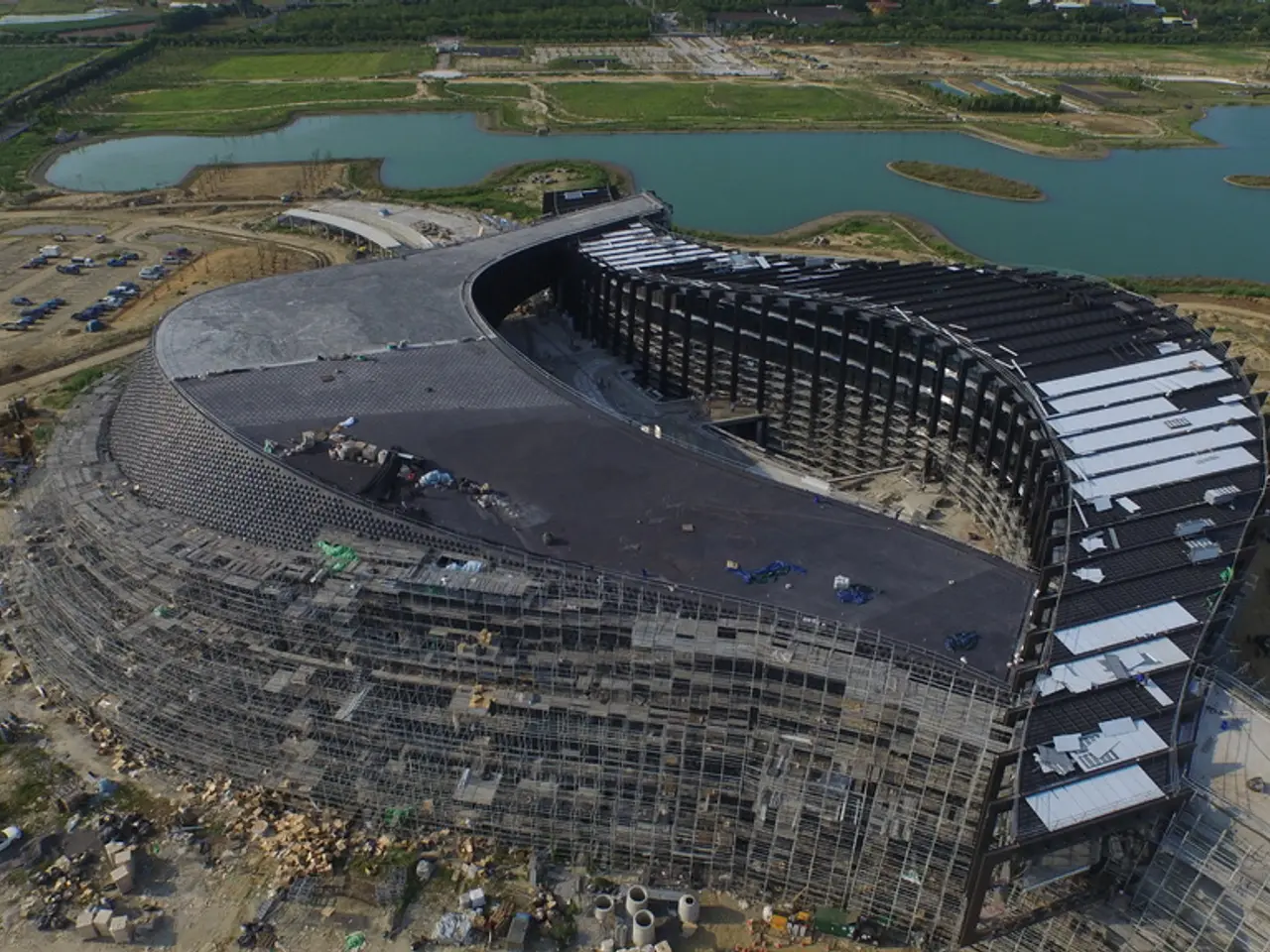AI-led Growth Propels $2.6 Trillion Deal Making Revival
=====================================================================
In 2025, the corporate mergers and acquisitions (M&A) landscape is experiencing a significant uptick, driven by a variety of factors.
According to recent reports, a growing number of firms are deploying Artificial Intelligence (AI), with 52% of companies accelerating AI adoption as part of their mitigation strategy. This shift towards AI is one of the factors contributing to the upswing in deals.
Despite a 16% drop in the number of deals compared to the same period in 2024, their value has increased by 28%. This increase is attributed to a drive for corporate growth and an upswing in AI activity.
The highest number of deals for the first seven months of the year since 2021 has been reported. Notable deals include Global Payments’ acquisition of Worldpay and Brown & Brown’s acquisition of RSC Topco, highlighting a trend toward platform integration and operational scale.
The rebound in U.S. GDP in Q2, easing regulatory environments, strategic imperatives for consolidation, and strong private equity dry powder ready for deployment are all contributing to this surge in M&A activity.
In North America, sectors like industrials, energy, and healthcare are seeing particularly high levels of activity. Latin America has also experienced increased cross-border M&A activity, with companies expanding within and beyond regional borders. Chinese buyers are active in oil, gas, and energy infrastructure sectors, and emerging markets like Argentina are experiencing a resurgence of activity due to economic and political stabilization.
The current White House trade policy, coupled with geopolitical uncertainty, has caused some companies to pause. However, perceived uncertainty among services companies has fallen to its lowest point in nearly a year, according to the Intelligence 2025 Certainty Project.
Bankers are navigating a competitive, faster-moving market with sustained demand for advisory services. Regulatory easing and streamlined approval processes are encouraging greater deal flow, especially in financial services.
Companies are shifting focus from scale to scope in deals, integrating ESG (Environmental, Social, and Governance) and DEI (Diversity, Equity, and Inclusion) criteria into their M&A strategies to meet stakeholder demands. Mid-market firms are becoming more engaged as buyers and sellers, attracted by growth and operational optimization opportunities. Private equity firms are prioritizing quicker returns and are active on the sell-side and buy-side, influencing deal structures and strategies.
The Union Pacific railroad's proposed $85 billion acquisition of Norfolk Southern is among the high-profile deals this year. JPMorgan Chase expects further deals to come in the second half of the year, targeting larger companies as they adapt to volatility.
However, the impact on bankers and companies includes navigating more heapings of uncertainty requiring operational agility across key areas like supply chain management, procurement, and product.
In a statement, Andre Veissid, EY Global Financial Services strategy and transactions leader, stated that the deal rationale for transactions is heavily growth-motivated and increasing. He also mentioned that executives are adapting to the current environment like spinach, treating it as a necessity due to knowing what's on the plate.
Subscribing to the AI Newsletter from the mentioned organization would provide all AI coverage. Notably, OpenAI has raised $40 billion in a funding round this year.
In conclusion, the M&A landscape in 2025 is characterized by robust deal activity driven by strategic consolidation, regulatory clarity, and strong private equity participation, with significant regional and sectoral variations influencing deal dynamics and outlooks for bankers and companies alike.
- The shift towards Artificial Intelligence (AI) by companies is not only contributing to the surge in mergers and acquisitions (M&A) activity, but also accelerating at an alarming rate, with 52% of firms reportedly increasing their AI adoption.
- In the realm of finance, private equity firms are prioritizing quicker returns and are actively participating in both the buy-side and sell-side, influencing deal structures and strategies.
- Business sectors like industrials, energy, and healthcare are seeing particularly high levels of M&A activity in North America, while Latin America has also witnessed increased cross-border deals.
- In the realm of technology, the integration of Environmental, Social, and Governance (ESG) and Diversity, Equity, and Inclusion (DEI) criteria into M&A strategies is becoming increasingly popular among companies seeking to meet stakeholder demands.




